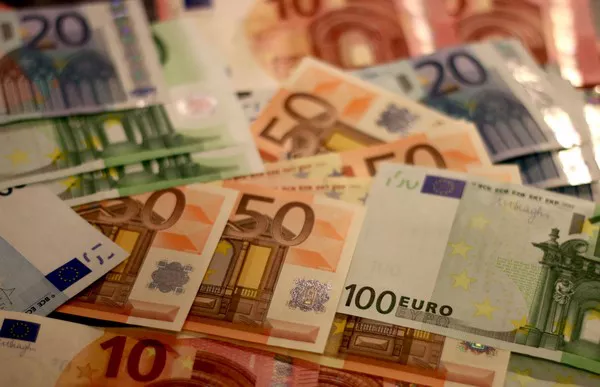The foreign exchange market is a complex and dynamic system where currency values fluctuate based on various economic, political, and social factors. Over the past few months, one notable trend has been the strengthening of the United States dollar (USD) against the euro (EUR). This article aims to delve into the reasons behind this phenomenon and explore its implications for the global economy.
1. Robust US Economic Recovery:
One pivotal factor contributing to the USD’s strength against the euro is the robust economic recovery in the United States. The nation has experienced significant growth across various sectors, including manufacturing, services, and employment. Stronger economic indicators such as GDP growth, low unemployment rates, and rising consumer confidence have increased the attractiveness of the USD to investors, leading to heightened demand and subsequent appreciation.
2. Diverging Monetary Policies:
Another crucial determinant of the USD’s strength is the divergence in monetary policies between the United States and the European Union (EU). The Federal Reserve (Fed) has adopted a more hawkish stance by signaling potential interest rate hikes and tapering its asset purchase program. In contrast, the European Central Bank (ECB) remains committed to accommodative policies, including negative interest rates and continued quantitative easing measures. This disparity in policy outlooks has driven capital flows towards the USD, bolstering its value against the euro.
3. Political Factors:
Political factors can significantly impact currency exchange rates. Recent political events in both the United States and the EU have influenced the USD’s strength relative to the euro. The Biden administration’s commitment to fiscal stimulus, infrastructure spending, and regulatory reforms has instilled confidence in the US economy, attracting foreign investments. Conversely, the EU faced challenges such as Brexit and internal political tensions, which have dampened investor sentiment and weakened the euro.
4. Safe-Haven Status:
The USD has long been considered a safe-haven currency during times of global economic uncertainty. Geopolitical tensions, trade disputes, and the ongoing COVID-19 pandemic have increased volatility in financial markets, prompting investors to seek refuge in USD-denominated assets. This heightened demand for the dollar has reinforced its strength against the euro.
Implications:
The strengthening of the USD against the euro carries several implications for various stakeholders:
1. Trade Dynamics: A stronger USD can make European exports more expensive, potentially impacting EU economies heavily reliant on exports. Simultaneously, it may benefit US exporters by making their goods comparatively cheaper in international markets, boosting their competitiveness.
2. Tourism and Travel: A stronger dollar relative to the euro makes travel to the US more expensive for Europeans but can attract more American tourists to Europe due to the increased purchasing power of the USD.
3. Capital Flows: The USD’s strength can divert capital flows away from the eurozone, affecting investment levels and potentially reducing liquidity within the region.
4. Central Bank Actions: The ECB may face challenges in maintaining price stability and achieving inflation targets if the euro remains weak. It may need to consider adjusting monetary policies to address these concerns.
Conclusion:
The recent strengthening of the USD against the euro is primarily driven by robust US economic recovery, diverging monetary policies, political factors, and the perception of the dollar as a safe-haven currency. While this trend carries implications for trade dynamics, tourism, capital flows, and central bank actions, it is essential to monitor these developments closely to understand the potential long-term impacts on the global economy.


